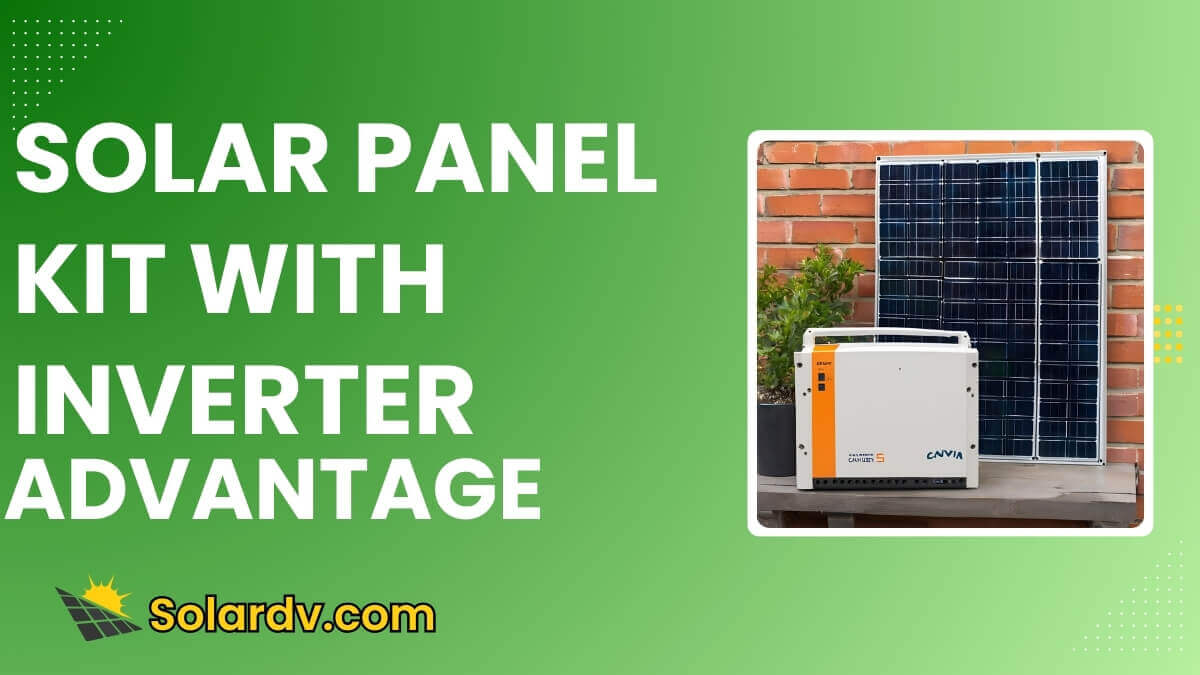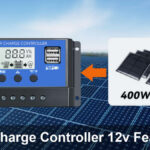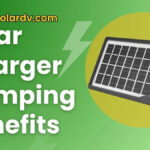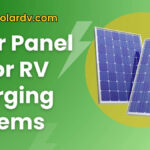A solar panel kit with inverter is a convenient package designed for homeowners or small businesses looking to harness solar energy for power generation. These kits typically include solar panels, converting the direct current (DC) produced by the solar panels into alternating current (AC), which is used. Here is a short answer to why this type of kit is so popular in this article.
Top 7 Solar Panel Kits with Inverter
Here are the Top 7 Solar Panel Kits with Inverters that are ideal for a variety of applications, from small off-grid setups to residential energy systems:
- Renogy 400W 12V: This kit includes two 200W solar panels and a 30A PWM charge controller. It’s perfect for beginners wanting to start small.
- Eco-Worthy 400W: Featuring four 100W solar panels and a 30A MPPT controller, this kit is ideal for off-grid applications and can power small appliances.
- WindyNation 400 Watt: With four 100W panels, this kit comes with a 30A charge controller and is suitable for RVs or cabins.
- ALLPOWERS 100W: A lightweight and compact option perfect for camping. It includes a built-in inverter, allowing you to charge devices on the go.
- Grape Solar 400-Watt: This kit includes four 100W panels and a 30A charge controller. It’s great for larger off-grid systems.
- Renogy 800W 48V: Ideal for larger installations, this kit includes four 200W panels and a 60A MPPT controller, perfect for heavy energy use.
- DOKIO 110W: Lightweight and portable, this kit includes a built-in inverter and is perfect for outdoor activities.
Advantages of Solar Panel Inverters
Solar panel inverters are a crucial part of any solar energy system, Here are the key advantages of solar panel inverters:
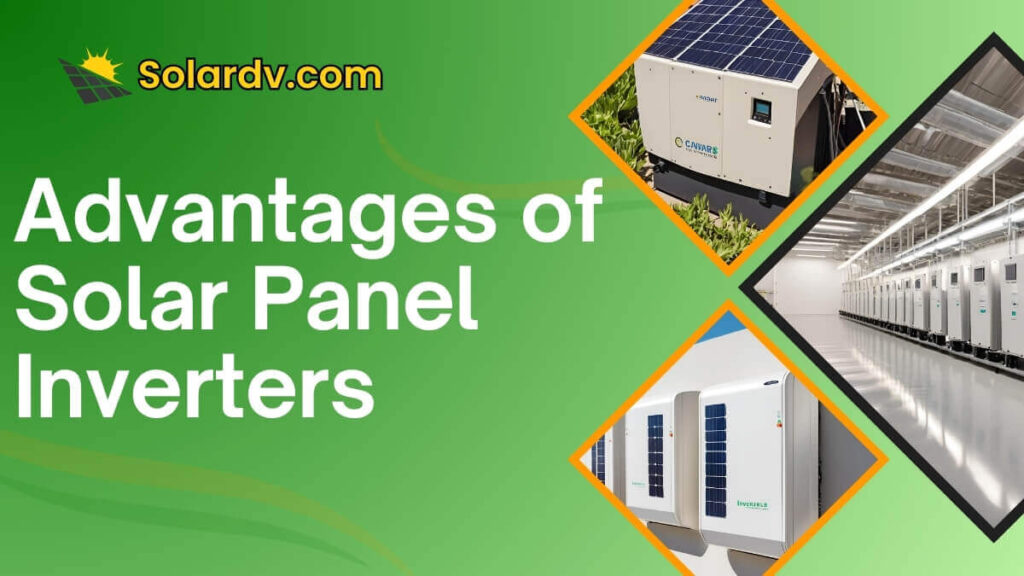
- Efficiency: Solar inverters are highly efficient in converting DC electricity generated by solar panels into AC electricity, which can be used by most household appliances.
- Energy Monitoring: Many modern inverters come with built-in monitoring systems that allow you to track the performance of your solar energy system in real-time.
- Grid Compatibility: Solar inverters enable homes to connect to the electrical grid, allowing homeowners to sell excess energy back to the utility company.
- Enhanced Safety: Inverters are equipped with safety features, such as anti-islanding protection, which ensures that the system automatically shuts down during a power outage to prevent electrocution risks.
- Improved Power Quality: Solar inverters help maintain a consistent power output, reducing the risk of voltage fluctuations and ensuring a stable energy supply.
- Durability: Most inverters are designed to withstand environmental factors such as heat and moisture, ensuring long-lasting performance.
- Backup Power Support: When paired with battery storage, solar inverters can provide backup power during grid outages, making them ideal for off-grid systems.
Solar Power Inverter 5000W
For those with larger energy needs, a 5000W solar power inverter can be a game changer. This type of inverter is capable of powering multiple appliances simultaneously, making it suitable for larger homes or businesses. Key features often include:
- High Power Capacity: The 5000W rating makes it suitable for homes, RVs, or businesses with significant energy demands, allowing it to run multiple large appliances such as refrigerators, air conditioners, or washing machines simultaneously.
- Pure Sine Wave Output: Many 5000W inverters produce a pure sine wave output, ensuring compatibility with sensitive electronic devices and offering smoother and more efficient power than modified sine wave inverters.
- Grid-Tie or Off-Grid Compatibility: These inverters can work in both grid-tied systems, where excess energy is fed back into the grid, and off-grid systems for independent energy use.
- Multiple AC Outlets: Most 5000W inverters come with several AC output sockets, enabling you to connect multiple devices or appliances at the same time.
- Smart Monitoring: Many models come with LCD displays or Bluetooth-enabled monitoring systems, giving you real-time insights into energy consumption, efficiency, and battery status.
- Battery Charging Support: Some 5000W inverters can also serve as battery chargers, storing excess solar power for use during periods of low sunlight or nighttime.
- Durability and Protection: These inverters are typically designed for durability, often including protections against overload, short circuits, over-voltage, and over-temperature to ensure long-term performance.
While it is possible to use a standard inverter, it’s not recommended. Solar inverters are designed specifically for solar energy systems, optimizing performance and efficiency.
The size of the inverter you need depends on your total energy consumption. A good rule of thumb is to choose an inverter that can handle at least 20% more power than your maximum load.
Yes, you can use a 1000 watt inverter with a 100 watt solar panel. However, the inverter won’t be able to utilize its full capacity unless you have additional solar panels.
The ideal type of inverter for solar panels depends on your particular requirements. Generally, there are three types: string inverters, microinverters, and power optimizers. String inverters are common for residential systems, while microinverters are great for maximizing energy production on shaded roofs.
Conclusion
Investing in a solar panel kit with inverter is a smart choice for anyone looking to reduce energy costs and embrace renewable energy. With various options available, you can find a kit that suits your needs, whether for home use or outdoor adventures. Understanding the advantages of solar inverters and how to choose the right size can enhance your solar experience. By harnessing the sun’s power, you’re taking a significant step toward a sustainable future.
